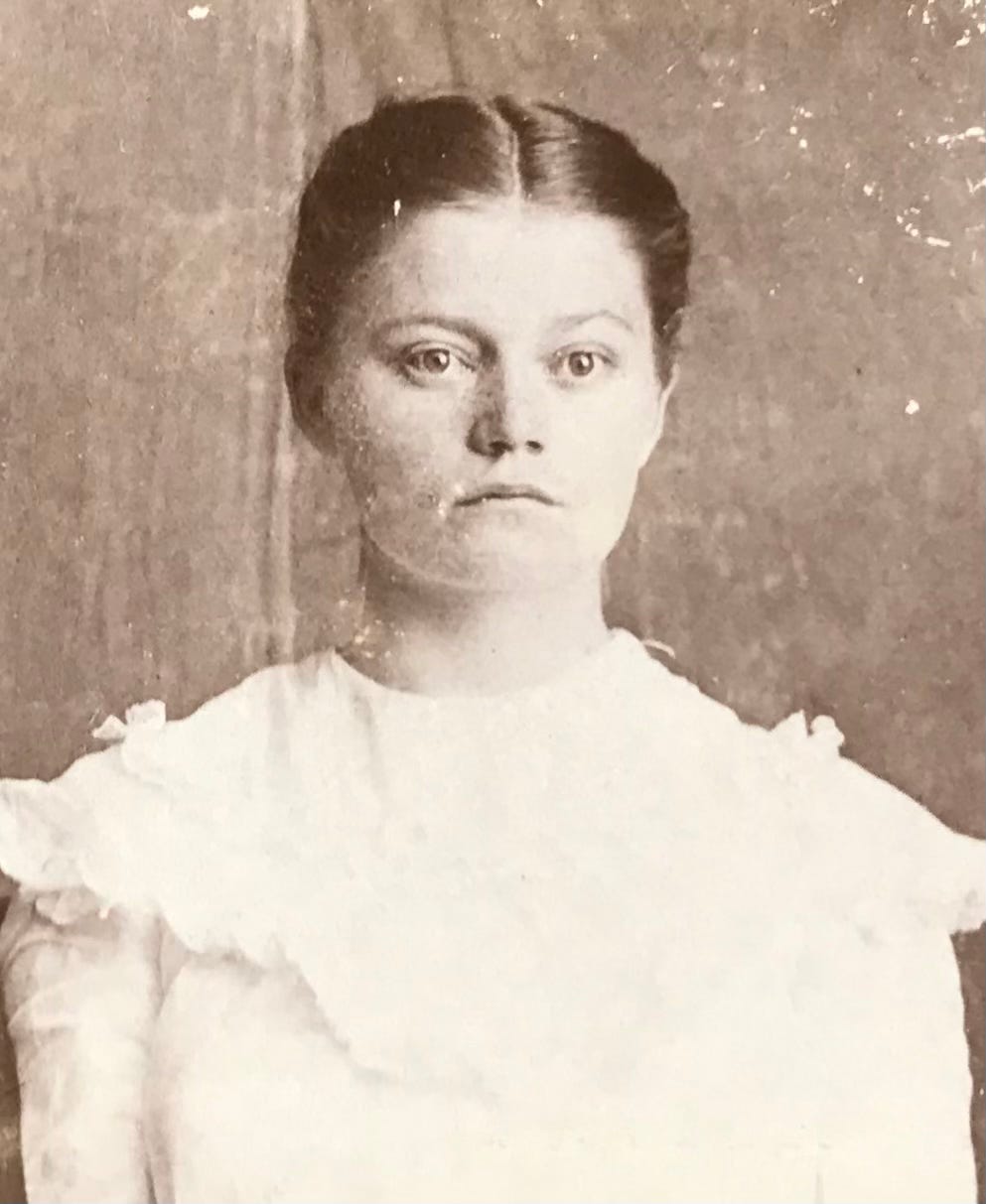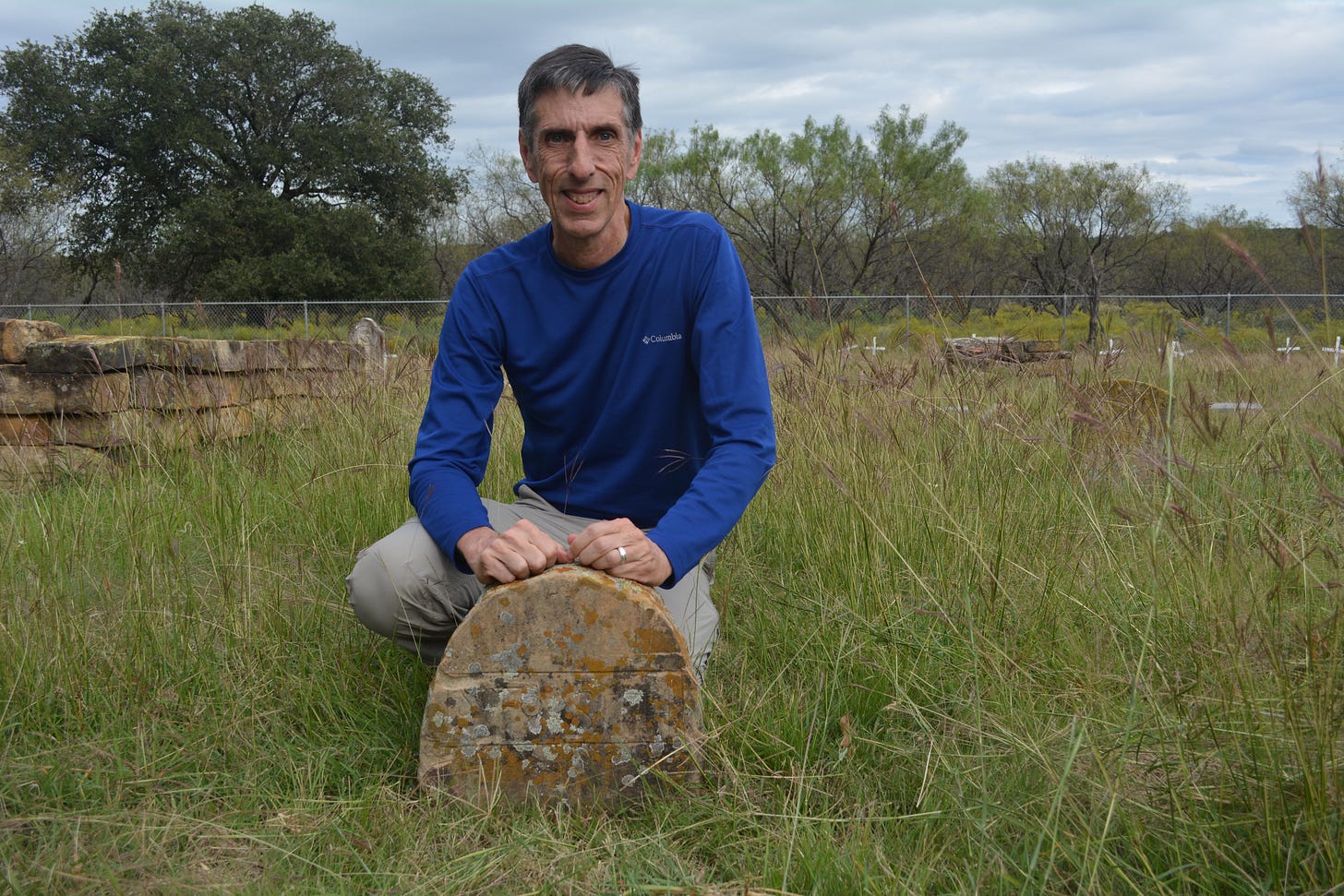Sarah Forsyth was well-acquainted with grief when learning the death of her grandson Norman1 Cherry in 1885 in Texas.
When she sat to write a consoling letter to her bereaved daughter Hattie Cherry in late March, the northeast Texas weather was likely “cold, gloomy, and peculiar” after a late frost and freeze, according to a newspaper account from a nearby county. The weather would certainly seem to have befitted the mood: “It seems that a gloom has lowered over our home,” she mentioned in the letter. I introduced Sarah’s correspondence in the previous post “Grateful to Great, Great-Grandmother.”
The pall of death had fallen on Sarah’s family more than once. Her first husband George Washington Hass died in 1862 as a Confederate soldier in Mississippi during the Civil War. Their son Tommy Hass died “after much affliction” — a presumed illness — as a teenager in 1879. Tommy’s three-year old half-brother, John David Forsyth, son of Sarah and her second husband David Allen Forsyth, preceded him to the grave in 1874.
When writing to daughter Hattie on that cold March day in 1885, Sarah would be a widower in five months. Her husband David Forsyth expected imminent death, she wrote Hattie. “I’ve would come [sic] and see you but your father is not able to come, and I can’t leave him. He says that if you don’t come and see him soon that he is afraid that you will never see him again on earth.” He died in August, and lies in an unmarked grave in northeast Texas.
Sarah had married Forsyth, a dark-haired, blue-eyed farmer and Tennessee native in 1863, three days short of one year after her first husband’s death. Forsyth was a Mexican War volunteer from Texas in 1847 when he enlisted in San Antonio, but didn’t serve long enough for Sarah to receive a widow’s pension when she applied in 1888.
But while Sarah had anticipated her husband’s death, could she have foreseen that Hattie would die less than two years after writing to her? Hattie had borne and buried one child; she would bear another but be buried herself. Eight days after delivery, the newborn daughter Mattie was motherless. Sarah’s heart would rend for daughter and granddaughter. But while the girl’s father would re-marry, Sarah was soon raising her granddaughter, even with minimal means of self-support.

She was practically destitute. Few farming families are well-to-do, and the Forsyths certainly were of modest means: They once sold 160 acres for two horses and a wagon.
After Sarah was widowed and applied for a pension, an affiant on her behalf stated that “she has no means on earth for support. The only property of any description she has consists of one cow and a calf.” In September 1890, she herself claimed total inability to perform manual labor; at that time, she and granddaughter were living with Sarah’s son-in-law Harvey Lee.2
The hardships and heartaches that Sarah suffered have not been my lot. She was fatigued, and handicapped by poverty. So, it is not surprising that she didn’t survive long after living with the Lee family. She was only 55 years old. Someone else would raise her granddaughter Mattie Cherry. A crudely-graven, barely-legible stone marks her grave.
I’ve been to her grave more than once — but not for several years. It is always a spiritual pilgrimage. Sarah Forsyth was prayerful, empathetic, and expectant of a resurrection with “no more tears” for those who are faithful toward the God-in-Christ for whom she apparently lived.
“Norman” is the best determination because the owner’s photocopy of Sarah Forsyth’s letter is unclear at the word. Sarah nowhere else identifies the child by name or sex, and a cemetery marker apparently doesn’t exist.
Harvey Lee was the husband of Sarah’s daughter Ellen Hass. They married in 1873 in Texas and had several children when Sarah lived with the family.



